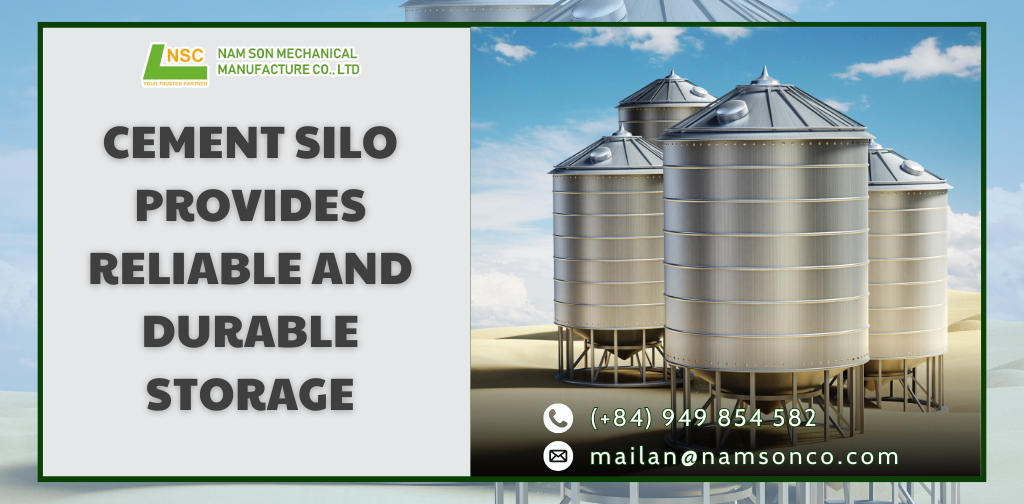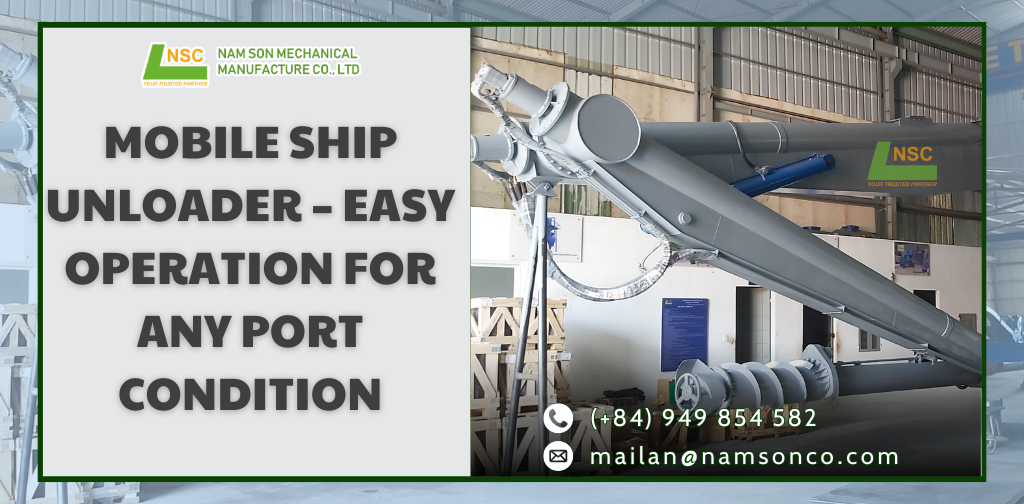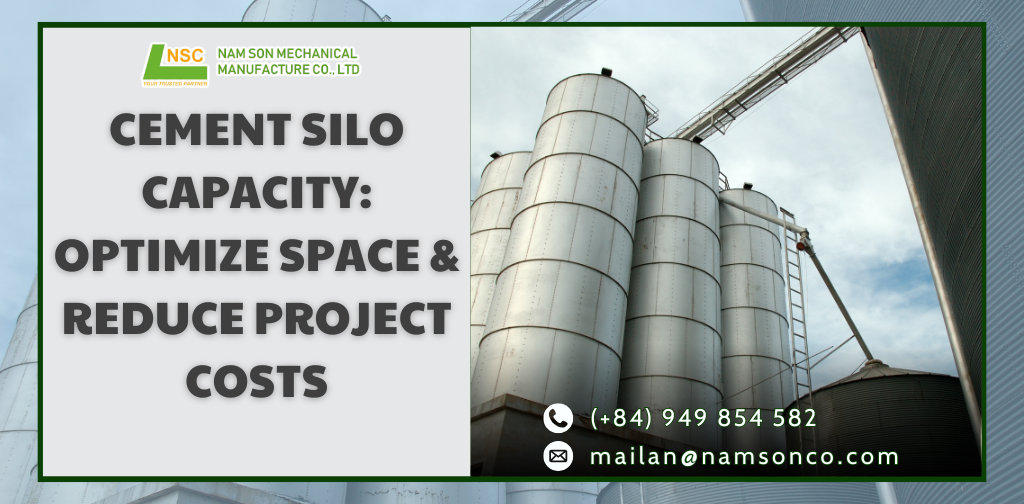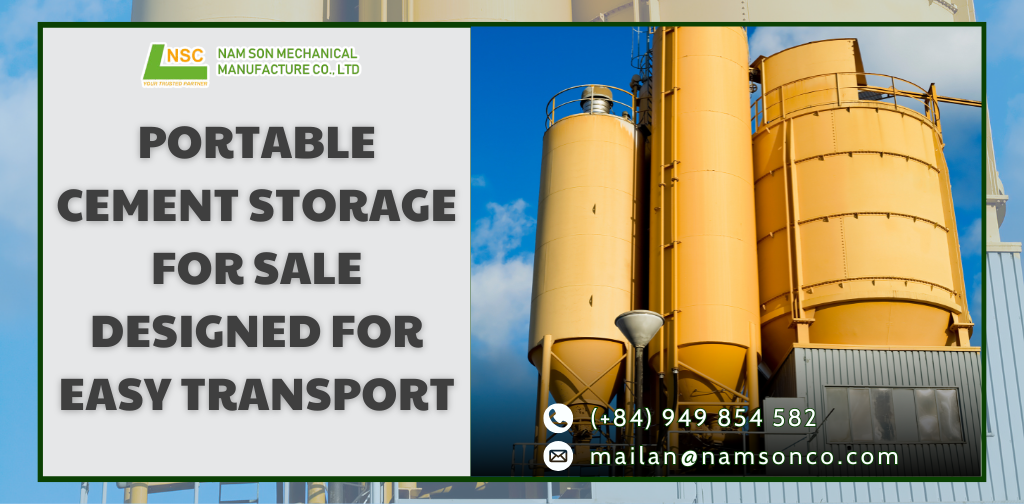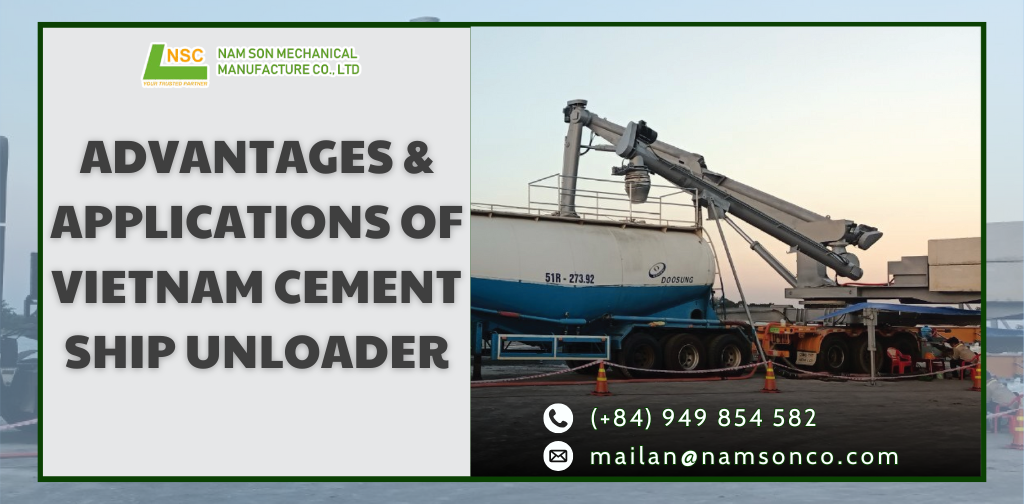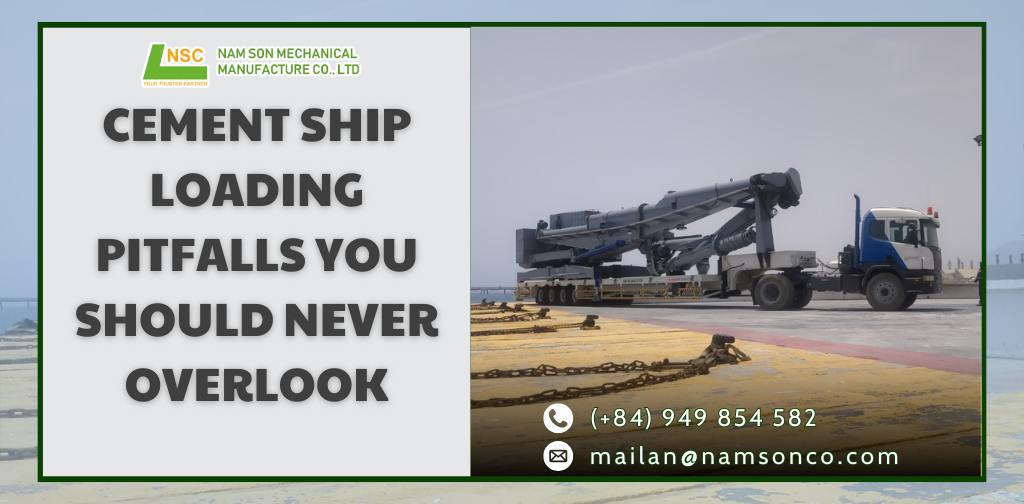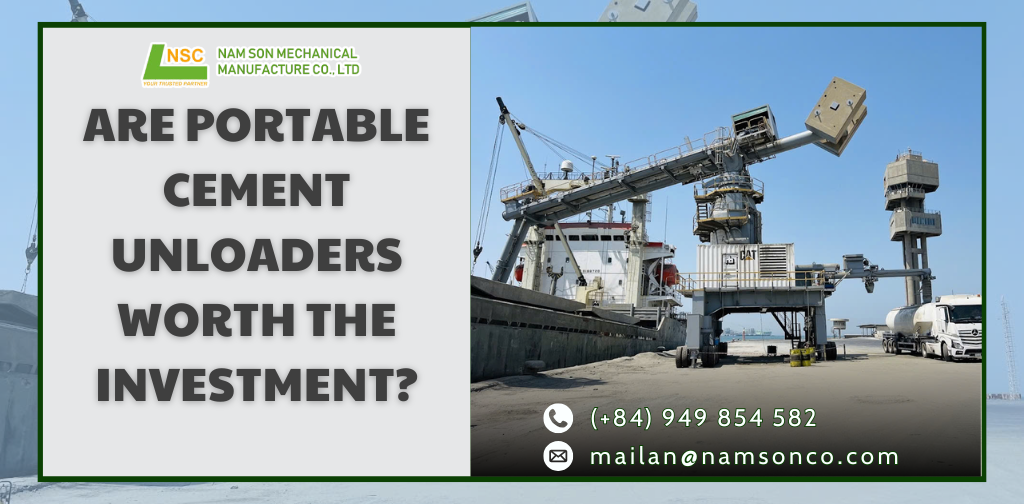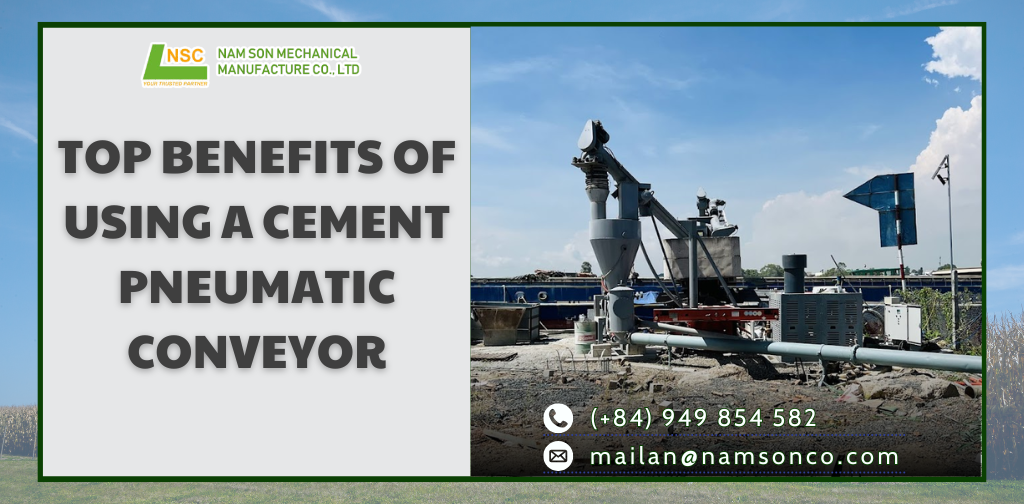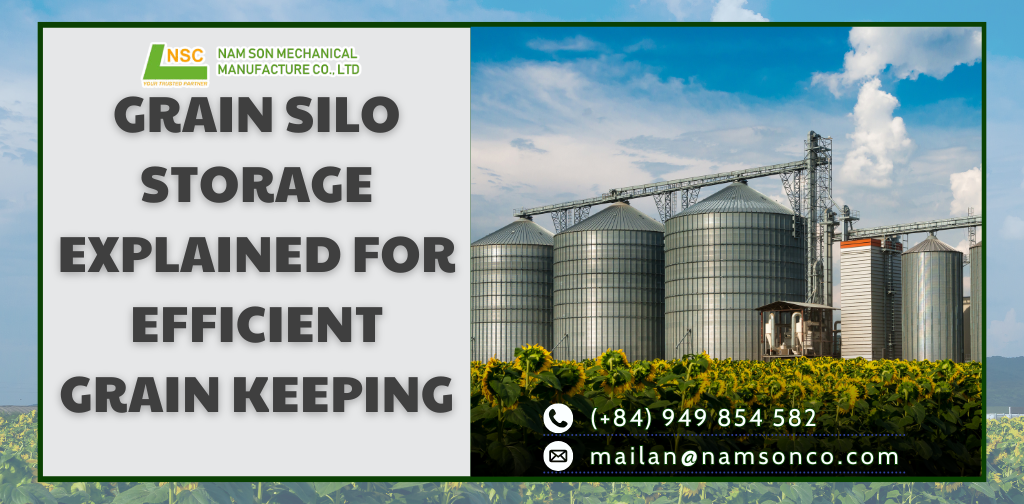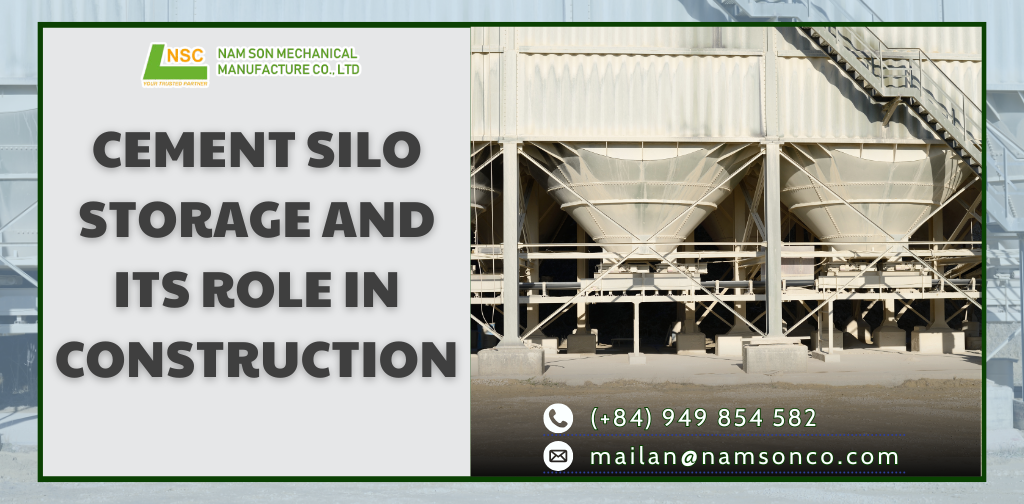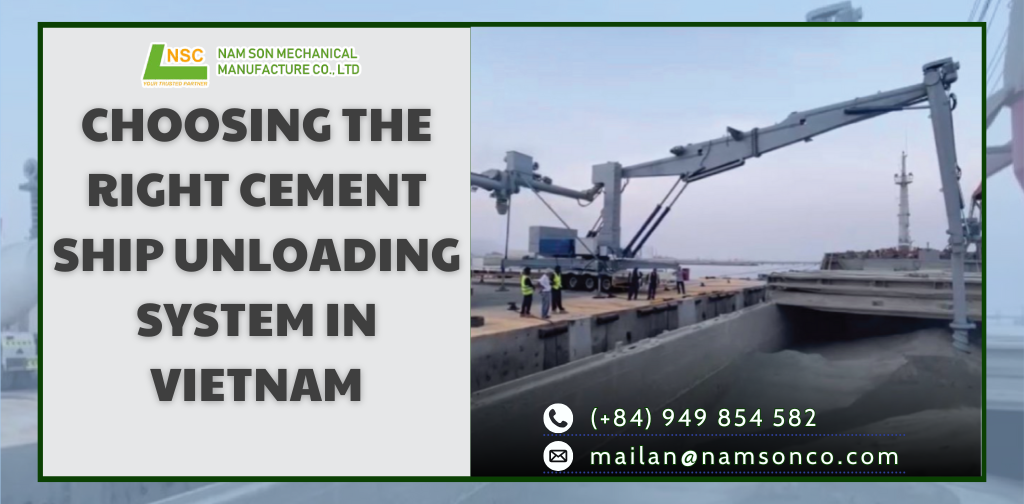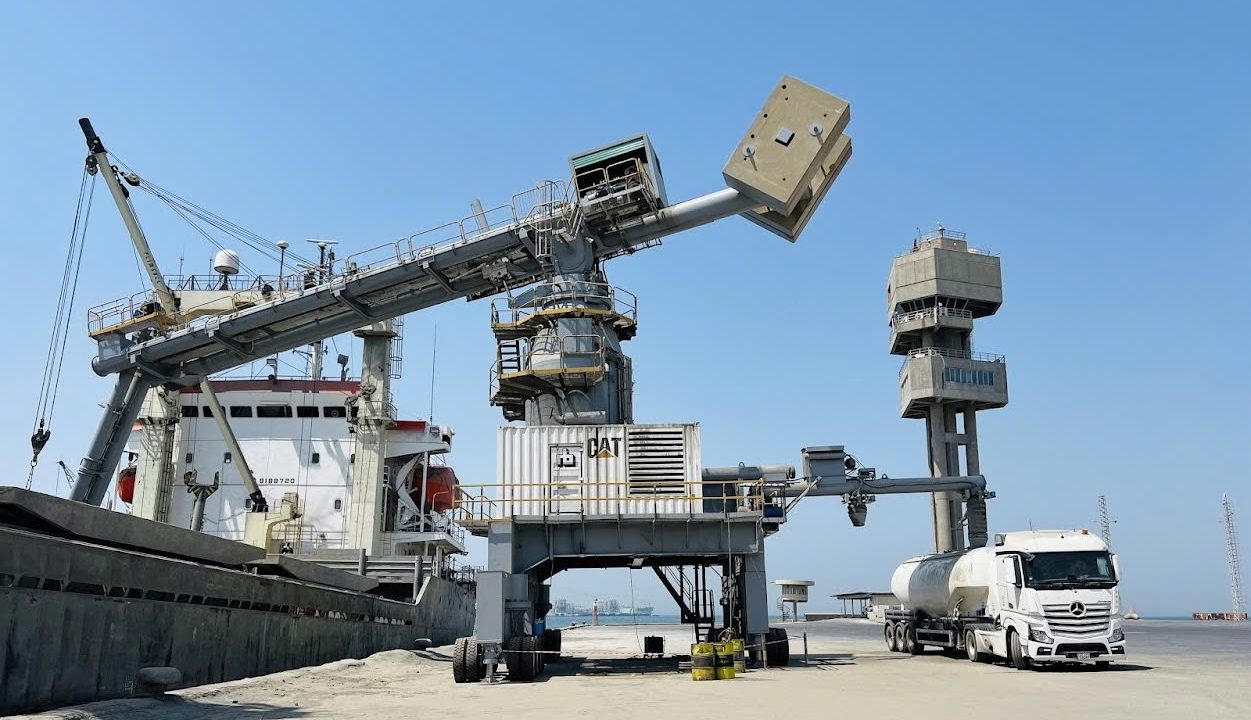A continuous ship unloader (CSU) is a breakthrough technology for modern bulk material terminals. Unlike grab-type unloaders, the CSU works with a bucket wheel ship unloader, screw conveyor ship unloader, or chain bucket system to discharge materials continuously, achieving capacities up to 6000 tph. This not only boosts port productivity but also ensures dust-free handling, energy efficiency, and long-term reliability. With applications ranging from coal handling and cement unloading to grain, alumina, and biomass, continuous ship unloaders are redefining the future of bulk cargo handling equipment in ports worldwide.
Introduction to continuous ship unloaders
In the bulk cargo industry, the continuous ship unloader (CSU) has become a key solution for improving port efficiency. Unlike the grab-type ship unloader, which operates in cycles, the continuous ship unloader system can discharge materials without interruption, delivering higher productivity and reducing vessel berthing time.
Today, many ports are shifting from mechanical continuous ship unloader models to advanced types such as the bucket wheel ship unloader or the screw conveyor ship unloader because of their stability and superior performance. With a CSU machine, handling large-scale bulk materials such as coal, clinker, or grain becomes faster and more cost-effective.
SEE MORE: Choosing the right cement ship unloading system in Vietnam
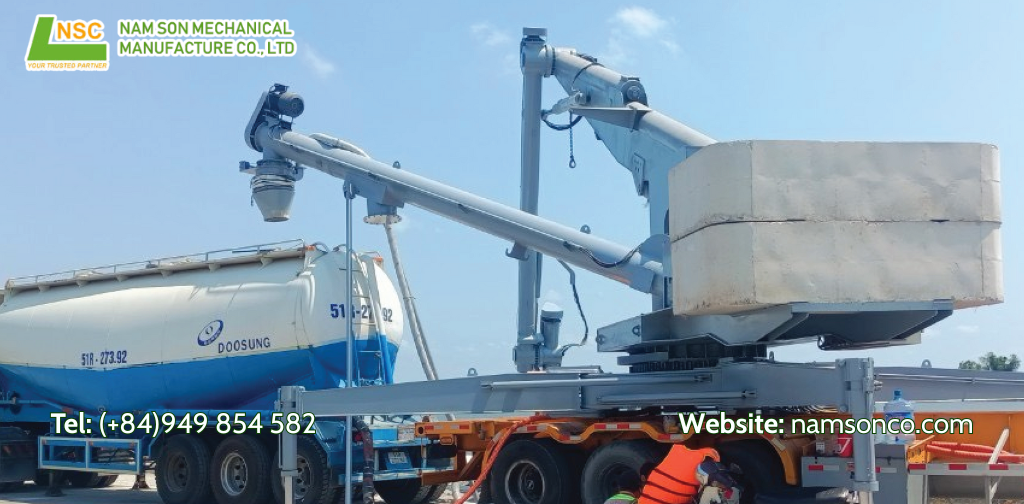
How a continuous ship unloader works and its efficiency
The principle of continuous ship unloading equipment is based on systems such as the bucket wheel mechanism, screw conveyor design, or the chain bucket ship unloader. These mechanisms operate non-stop, ensuring that materials are lifted, conveyed, and discharged directly into the shore conveyor system.
The biggest difference lies in speed and performance. A high-capacity continuous ship unloader can reach 5000 tph ship unloader or even 6000 tph CSU, significantly reducing unloading time. This means the fast ship unloading machine directly improves port throughput and lowers vessel waiting costs.
In addition, the design of the energy-efficient ship unloader and modern CSU handling system reduces energy consumption, improves durability, and optimizes overall operational efficiency.
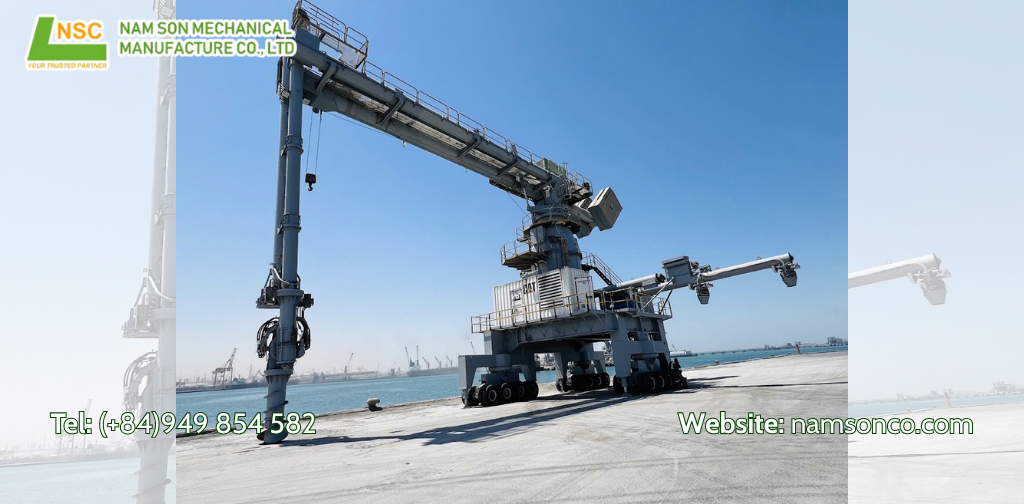
Benefits of continuous ship unloaders in bulk material terminals
Applying continuous ship unloaders brings clear benefits to bulk material terminals:
- Higher port productivity: Thanks to continuous operation, port productivity CSU is much higher compared to conventional unloaders. With automated ship unloading, dependency on manual labor is also minimized.
- Environmental advantages: Features such as a free continuous ship unloader, an eco-friendly CSU, and a low-noise ship unloader allow ports to reduce their environmental impact, particularly in urban locations.
- Safety & cost savings: Systems designed as reliable CSU offer a long service life, are easier to operate (operator-friendly CSU), and provide a safer working environment.
These factors not only help ports meet global operational standards but also create a competitive advantage in the logistics industry.
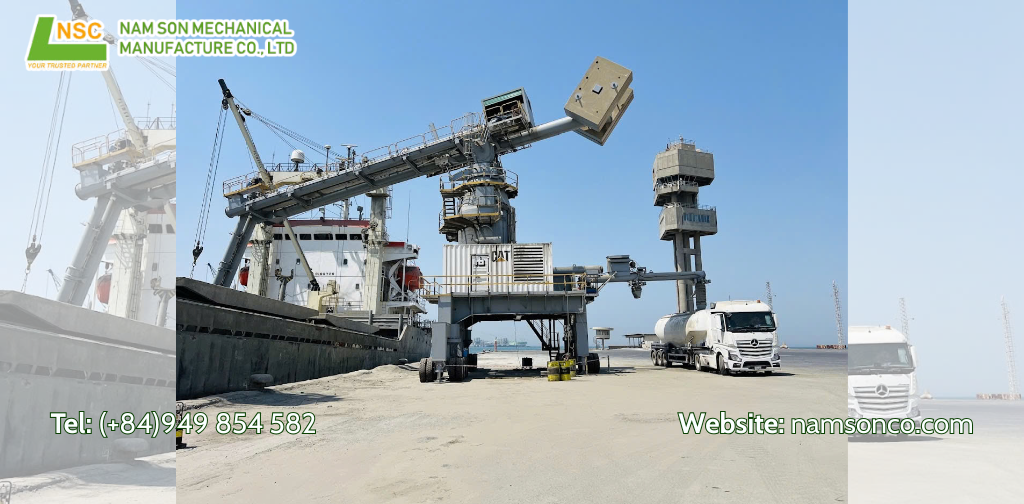
Applications across different bulk materials
One of the greatest strengths of the continuous ship unloader is its adaptability to different types of bulk cargo:
- Energy industry: CSU for coal handling in thermal power plants.
- Construction industry: continuous ship unloader for cement, clinker unloading CSU for cement plants.
- Agriculture & food: grain unloading continuous ship unloader, sugar ship unloading machine, fertilizer unloading machine.
- Mining & metals: alumina ship unloader continuous, bauxite continuous ship unloader, iron ore unloading CSU.
- Renewable energy: biomass CSU system for handling clean fuels.
This diversity makes CSU the optimal choice for modern bulk cargo handling equipment at ports worldwide.
SEE MORE: Advantages & practical applications of Vietnam cement ship unloader in cement industry
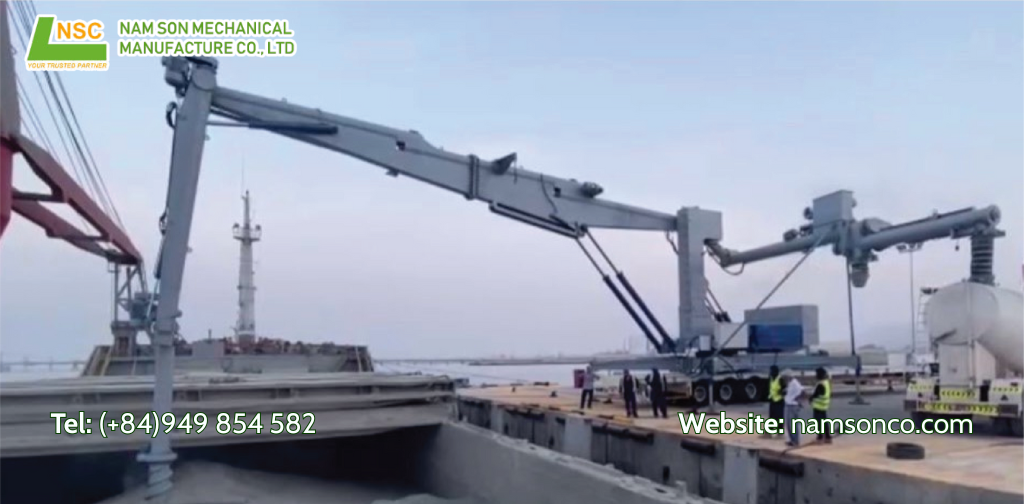
Market outlook and future trends
The market for continuous ship unloaders is expanding rapidly, with strong participation from global manufacturers. Continuous ship unloader manufacturers in China, CSU suppliers in Vietnam, German continuous ship unloader, and Japanese ship unloader technology currently dominate the field. These companies serve both domestic markets and continuous ship unloader exports worldwide.
Looking ahead, the focus will be on automation in the continuous ship unloader, integrating IoT and AI for smarter operations. In addition, innovations such as continuous conveying system, bulk terminal unloaders, and continuous discharge machines will continue to evolve to meet stricter environmental and efficiency demands.
This creates opportunities for both Asian ship unloader suppliers and the global CSU market, where demand for bulk cargo handling solutions is increasing.
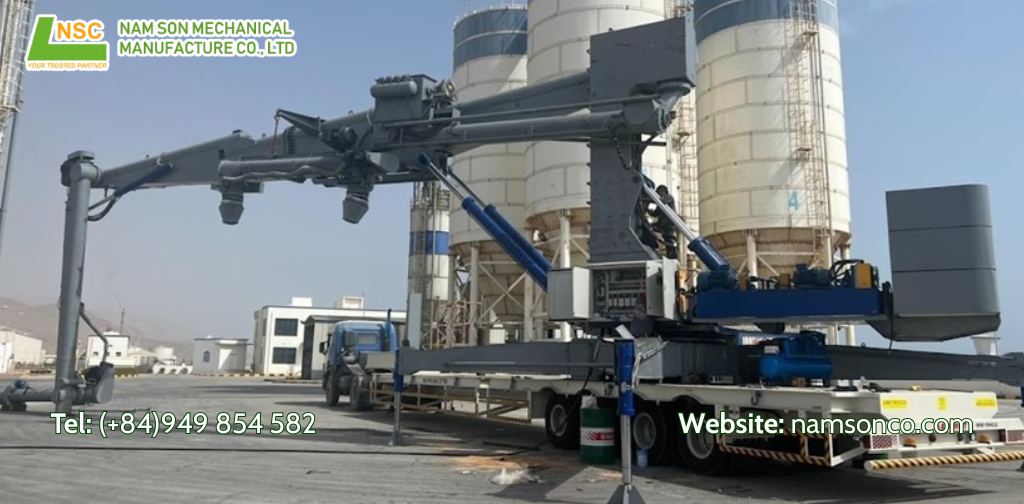
Conclusion
The continuous ship unloader improves productivity in bulk material terminals by shortening unloading times, reducing operating costs, and enhancing environmental performance. With continuous operation, high capacity, and broad applications, CSU has become an indispensable solution in modern port development.
Investing in continuous ship unloading machinery not only delivers immediate economic benefits but also represents a long-term strategy for ports and bulk terminals to strengthen their competitiveness in the global logistics chain.
Ready to upgrade your port operations with a reliable continuous ship unloader? Contact us today for expert consultation and customized solutions.
SEE MORE: A beginner’s guide to cement ship unloading systems
CONTACT US
- Website: namsonco.com | mayhuthoi.com
- Alibaba: dthson.trustpass.alibaba.com
- Facebook: facebook.com/NamSonPneumaticConveyor
- Zalo/Whatsapp: (+84) 949854582
- Email: mailan@namsonco.com | thanhson@namsonco.com


